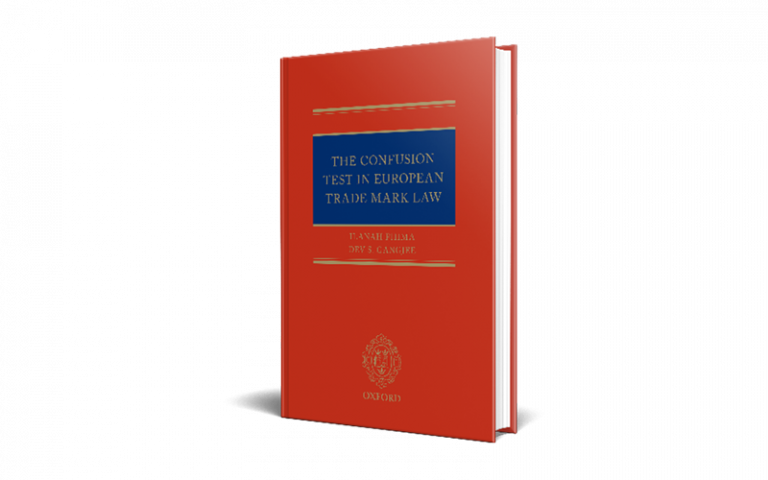The Confusion Test in European Trade Mark Law by Dr Ilanah Fhima published today
31 October 2019
Dr Ilanah Fhima’s monograph, The Confusion Test in European Trade Mark Law, written with Professor Dev Gangjee (Oxford), has been published by Oxford University Press (OUP) today.

Oxford University Press (OUP) has published The Confusion Test in European Trade Mark Law today. This book is jointly authored by Dr Ilanah Fhima (UCL) and Professor Dev Gangjee (Oxford).
Historically, likelihood of confusion has been the core infringement test for trade mark law, and it remains the most frequently applied test in infringement actions by far. However, there are noticeable differences in how it is applied by the Court of Justice of the European Union (CJEU), the General Court, and national courts; and questionable outcomes when it is applied in novel situations.
In this new book, the authors undertake a comprehensive and systematic account of the confusion test within the harmonised European trade mark system. It considers how the test is applied by national trade mark registries across EU member states, by the EUIPO, by national courts, and by the CJEU. Commenting ahead of the book’s publication, Dr Fhima said:
"The aim of our book is to offer practical guidance on all aspects of confusion in trade mark law, while also evaluating the normative viability of more recent developments such as initial-interest confusion, post-sale confusion and consumer responses to uses of trade marks on the internet."
Dr Ilanah Fhima is Reader in Intellectual Property Law and Co-director of the Institute of Brand and Innovation Law, Faculty of Laws, University College London. Ilanah is particularly interested in the influence of European law on intellectual property law and the way in which the intellectual property system balances the interests of IPR holders, competitors, consumers, users and the public more generally.
Dev Gangjee is Professor of Intellectual Property Law, Faculty of Law, University of Oxford. Dev’s research focuses on branding and trade marks, geographical indications and copyright law. He is also interested in the history and political economy of intellectual property, collective and open innovation, and the interface between intellectual property and theories of development.
Further details about the book can be found on the OUP website here, or reserve a place to attend the book’s official launch on 14 November 2019 here.
 Close
Close

